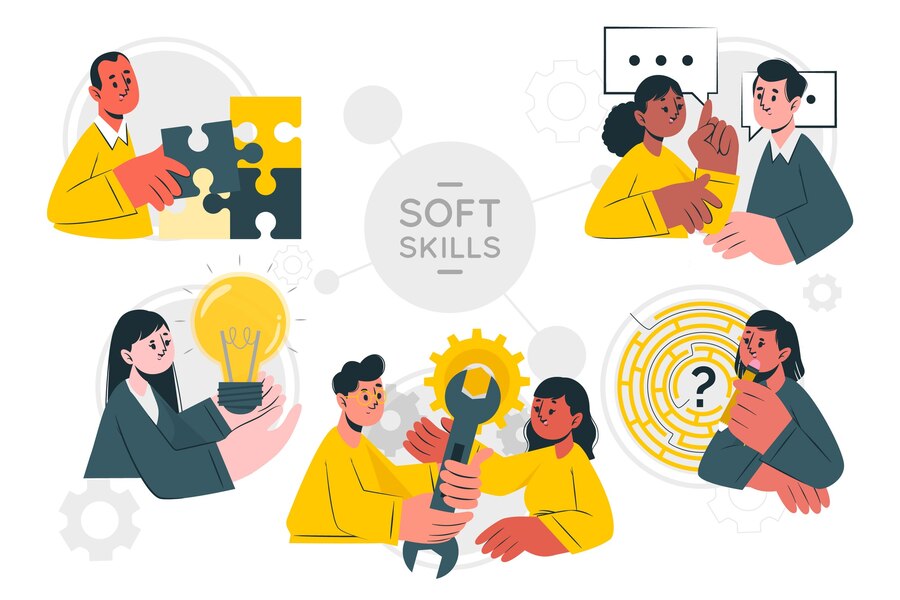Since behavioral interview questions tend to be something that most programmers are not particularly strong at, a lot of individuals are quite terrified of them during the technical rounds of interviews. Behavioral interview questions are far more variable and can occasionally make applicants feel rather uneasy than technical ones, which are fairly conventional and typically have clear solutions.
In this blog, you get to know the top strategies to crack behavioral interview questions.
What is a Behavioural Interview?
Employers and interviewers utilize a special sort of method called a behavioral interview to examine a candidate’s prior conduct. They provide hypothetical queries with extremely standard responses on purpose. The applicant must choose a suitable example and adjust their response accordingly. Furthermore, the response must be constructive; no negative remarks against the previous administration or the circumstances should be made. The interviewer evaluates the candidate and makes decisions based on the response.
Recommended Read: How to Create an ATS-Friendly Resume: Tips for Job Seekers
5 Tips & Strategies to Prepare for a Behavioural Interview

In this post, we will discuss seven useful strategies for overcoming your anxiety related to behavioral interview questions.
1. Be Familiar with Your Past Experience
At first, this may seem absurd to those who believe that individuals are always familiar with their own experiences. You should be aware of the history and be able to speak fluently and clearly about anything. Make sure you’re ready to offer a succinct overview of your background.
Without a doubt, the most typical questions asked at the start of an interview are “Tell me about yourself”, “Where do you see yourself in 5 years”, and more. But until you’ve conducted several interviews, you’ll be shocked at how many individuals don’t prepare these well.
Some individuals ramble endlessly about their experiences until the interviewer interrupts them, while others go into a tangle of technical minutiae that are difficult for non-experts to grasp. It is advised to get ready for a one-minute version that solely covers advanced topics. It’s possible to keep improving depending on comments and reactions from others, which is comparable to practicing an elevator pitch. Finally, while it’s rare, it is still possible to be asked questions such as “What was the most challenging project you have ever worked on?” or “Can you tell me about a project where you worked closely with others?” It never hurts to take some time to get ready for questions like this.
Recommended Read: Preparing for Your Future: Where Do You See Yourself in 5 Years?
2. Be Familiar with the Company
In the same vein, we set a very high standard for “very familiar.” In actuality, you need to be more knowledgeable about this organization than the majority of other applicants.
As an interviewer, it will be quite discouraging if the candidate has very little knowledge of your business. When you ask him what he knows about the firm, he might hardly offer more than one word. Alternatively, he can only inquire about easily obtainable information online, such as the languages that Google speaks.
Conversely, it may be quite impressive and you could influence the hiring decision if you can demonstrate a deep interest in and understanding of the organization. You may not only provide a thoughtful response to the interview question “What do you know about us,” but you can also think of excellent follow-up questions for the interviewers. Learn as much as you can about the firm, including its goals and culture while preparing for behavioral interview questions.
3. Be Familiar with the Product
A lot of people think that a company’s product represents its essence, therefore even in technical interviews, interviewers frequently ask candidates whether they understand or have any feedback on their goods.
Candidates frequently spend ten minutes during interviews talking with interviewers about certain product features; these conversations can cover both technical and non-technical topics. Saying “Please provide any feedback or critique of a feature” is perhaps the most often asked query.
4. Have a Clear Answer Why You Want to Join the Company
You will be required to explain your motivation for applying to this organization through several interviews. Furthermore, some businesses need this question to be answered. While there isn’t a set response for this question, there are several that are so obviously incorrect that it’s practically a given the applicant would fail.
Some individuals claim they have little room to expand in their previous firms or that they didn’t have many opportunities to learn. These candidates may explain why they wish to work here. If they were affiliated with some major businesses, this looks even worse. How could you claim that you have no opportunity to learn anymore if you work for an organization with more than 100 employees? The goal should be to determine this before you ever apply to that organization, not to come up with a compelling excuse to respond.
5. Communication
Sometimes, the main focus of behavioral interview questions is communication. You are aware that many times, how you express something matters more than what you say.
More precisely, behavioral interview questions are used not only to assess a candidate’s specific skills but also to give interviewers some indication as to whether or not they wish to work with them in the future. If you have excellent communication skills, you may still make a good impression even if your answers are not perfect.
You can perform mock interviews with friends or experienced interviewers and get their input. Without actively conversing with people, it is difficult to build your communication skills.
Conclusion

Many individuals believe that those behavioral questions are the only way to assess your non-technical talents; in reality, the entire interview process is used to do so. Don’t only concentrate on the question when you prepare for behavioral interview questions; sometimes, communication is just as crucial. More broadly, interviewers are not just attempting to find out if you can answer those questions correctly; they are also trying to determine whether or not they want to work with you in the future.
Technical expertise alone won’t cut it in today’s cutthroat business world — developing soft skills is essential! If you want to know more about how to tackle the behavioral interview questions. Feel free to avail EnrichMyCareer’s free 15-minute consultation.
Visit EnrichMyCareer to know more.
Frequently Asked Questions
1. How should I prepare for a behavioral interview?
During behavioral interviews, questions should be focused on the position’s key competencies. Therefore, carefully study the job description and consider experiences that highlight your skills in the areas that the employer is looking for.
2. Why should we hire you?
When responding, emphasize the accomplishments, experience, and pertinent abilities that make you the most qualified candidate for the position.I am a dedicated worker who wants to see your business grow, thus you should hire me. I am ready to learn and advance with your team. I possess the knowledge and expertise required for the position.
3. What is the STAR method in interviewing?
The STAR interview approach is a strategy that aids in your preparation. Behavioral interview questions ascertain your suitability for particular job-related scenarios.

A content writer with a passion for crafting engaging content. Dedicated to continuous learning and innovative, excels at adapting diverse writing styles.



